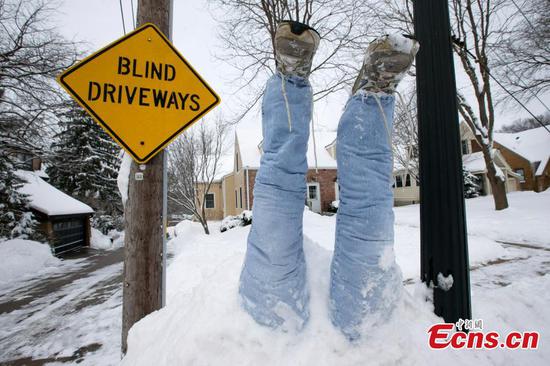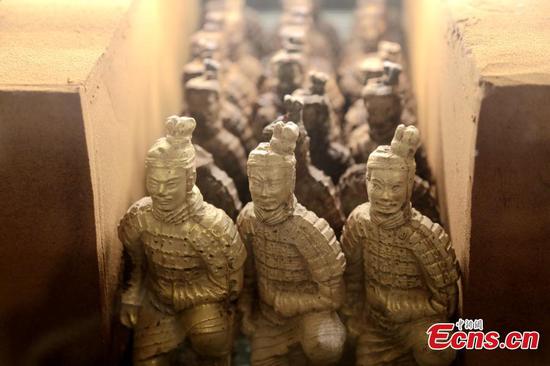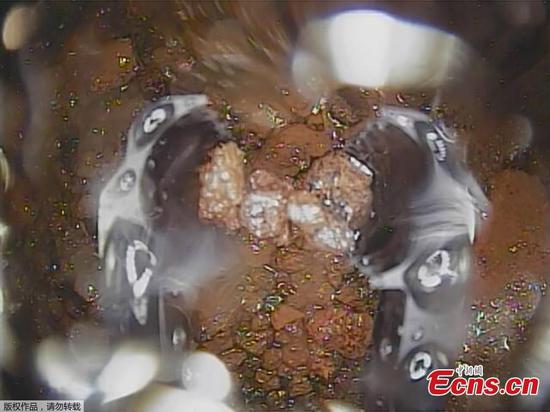Two months ago, Chateau, a neighborhood with 3,000 households in Maqiao township, Shanghai's Minhang district, began promoting garbage sorting to its residents.
Every day from 6:30 to 8:30 in the morning and 6:00 to 8:00 in the evening, volunteers will help residents sort out their garbage at the neighborhood's garbage sorting stations. Those who correctly sort their garbage will get reward points.
Chateau is one of a growing number of neighborhoods in Shanghai that have upgraded their garbage sorting bins and stations. By the end of last year, more than 9,000 stations have been updated to help promote the practice.
In the past, the lack of garbage sorting bins in many neighborhoods has discouraged many citizens from sorting their waste. "Neighborhoods are an important first step in achieving garbage classification. A lot of residents were not interested in sorting their garbage because the rubbish sorting facilities in the neighborhood were incomplete," Xiao Han, vice manager of Xingdong Environment, who participated in Chateau's garbage classification, told Jiefang Daily.
China has been trying to promote garbage classification in the past two decades but with little progress. Now, Shanghai will make garbage sorting a legal requirement by passing the municipality's first regulation on domestic garbage management during this year's Shanghai Municipal People's Congress.
According to the regulation, which will take effect on July 1, 2019, household trash should be sorted into four categories: dry garbage, kitchen waste, recyclables and hazardous waste. Failure to classify garbage this way by individuals will lead to fines of up to 200 yuan, and for companies and organizations the fine can go up to 50,000 yuan.
The regulation also bans the use of disposable cups by Shanghai's Party and government organizations and the provision of disposable daily products by hotels and disposable cutlery by restaurants and delivery services, unless they are requested by customers. Hotels and restaurants that violate the regulation can be fined 500 to 5,000 yuan.
To prepare the city for the new law, Shanghai plans to invest 20 billion yuan from 2018 to 2020 to upgrade its garbage sorting facilities, according to Jiefang Daily.
In surveys, many Shanghai citizens say they are discouraged by the fact that many waste collection vehicles mix different types of garbage together.
This means that their efforts to sort their garbage into different categories are in vain.
By the end of 2018, Shanghai designated 767 vehicles for collecting wet garbage and 3,000 vehicles for dry garbage, and 15 for hazardous waste.
In addition to vehicles, the two major transit stations for household garbage, the Xupu transit station and the Wenzaobang transit station, have also been renovated so that they have better capacity and efficiency in dealing with garbage.
The city has also launched campaigns to promote garbage sorting in kindergartens, primary schools and middle schools.
In Shanghai Huangpu School, all classes from primary to middle school have designated a garbage sorting supervisor. Each classroom is equipped with three garbage sorting bins and two garbage sorting boxes. Lessons on how to sort garbage will be given to students through broadcasts and special sessions, according to thepaper.cn.
Students are encouraged to promote these ideas to their parents and their neighborhoods.


















































